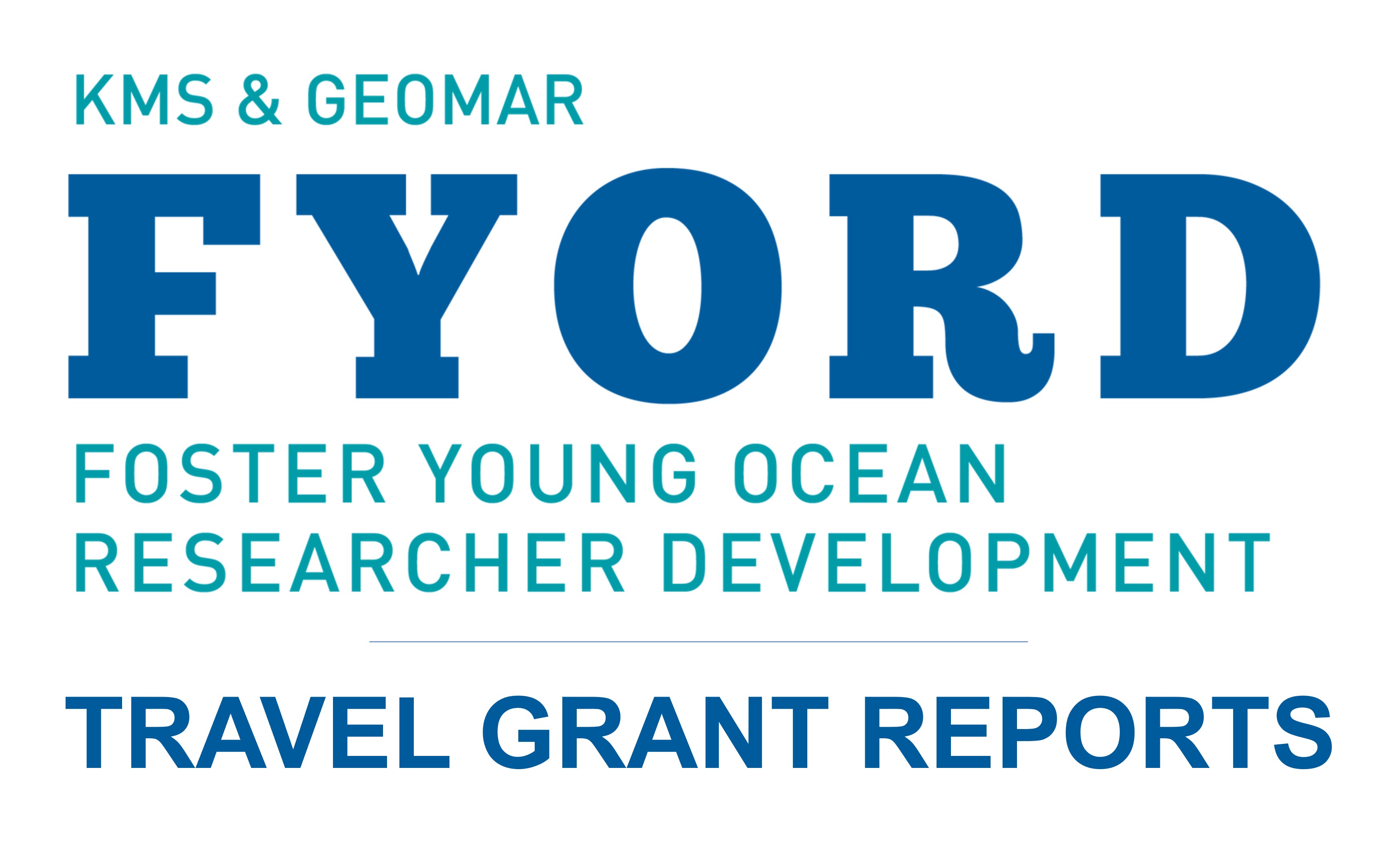The American Geophysical Union Fall Meeting (AGU24)
I am Carlos Arenas, a doctoral researcher from the Marine Geodynamics department at the GEOMAR Helmholtz Centre for Ocean Research Kiel. I investigate the thermal structure of the Pegasus Basin, located at the southern end of the Hikurangi Margin, New Zealand. By analyzing seismic records and modelling subsurface temperature fields, I showed how active geological processes significantly influence regional thermal gradients and gas hydrate stability.
The American Geophysical Union Fall Meeting (AGU24) in Washington D.C., USA, offered me a fantastic opportunity to share my research and personally connect with the global scientific community dedicated to natural gas hydrate systems, along with industry stakeholders who play a key role in the development of marine geosciences. The event brought together over 30,000 attendees from more than 100 countries and ran for a week.
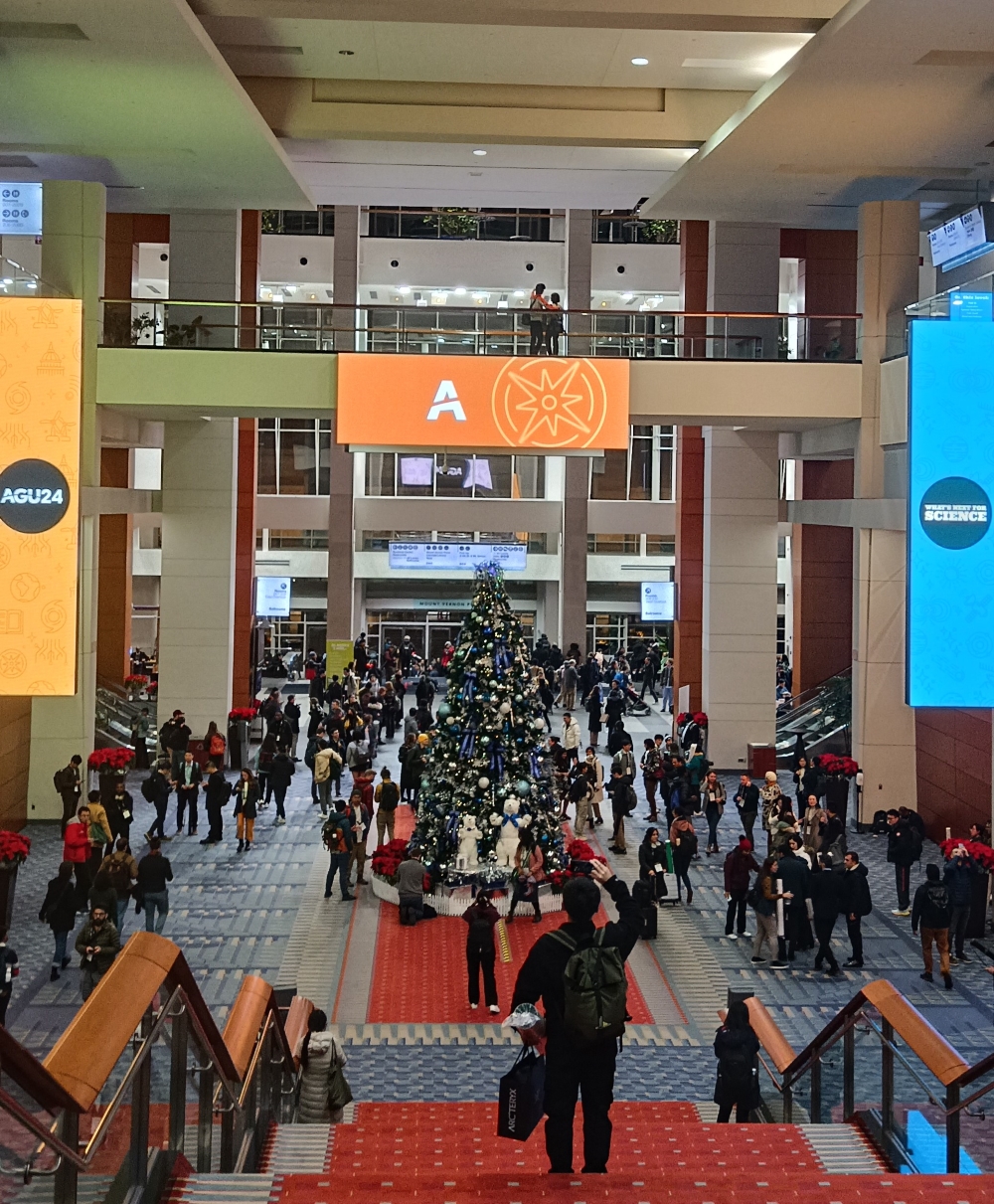
At the AGU24 conference venue 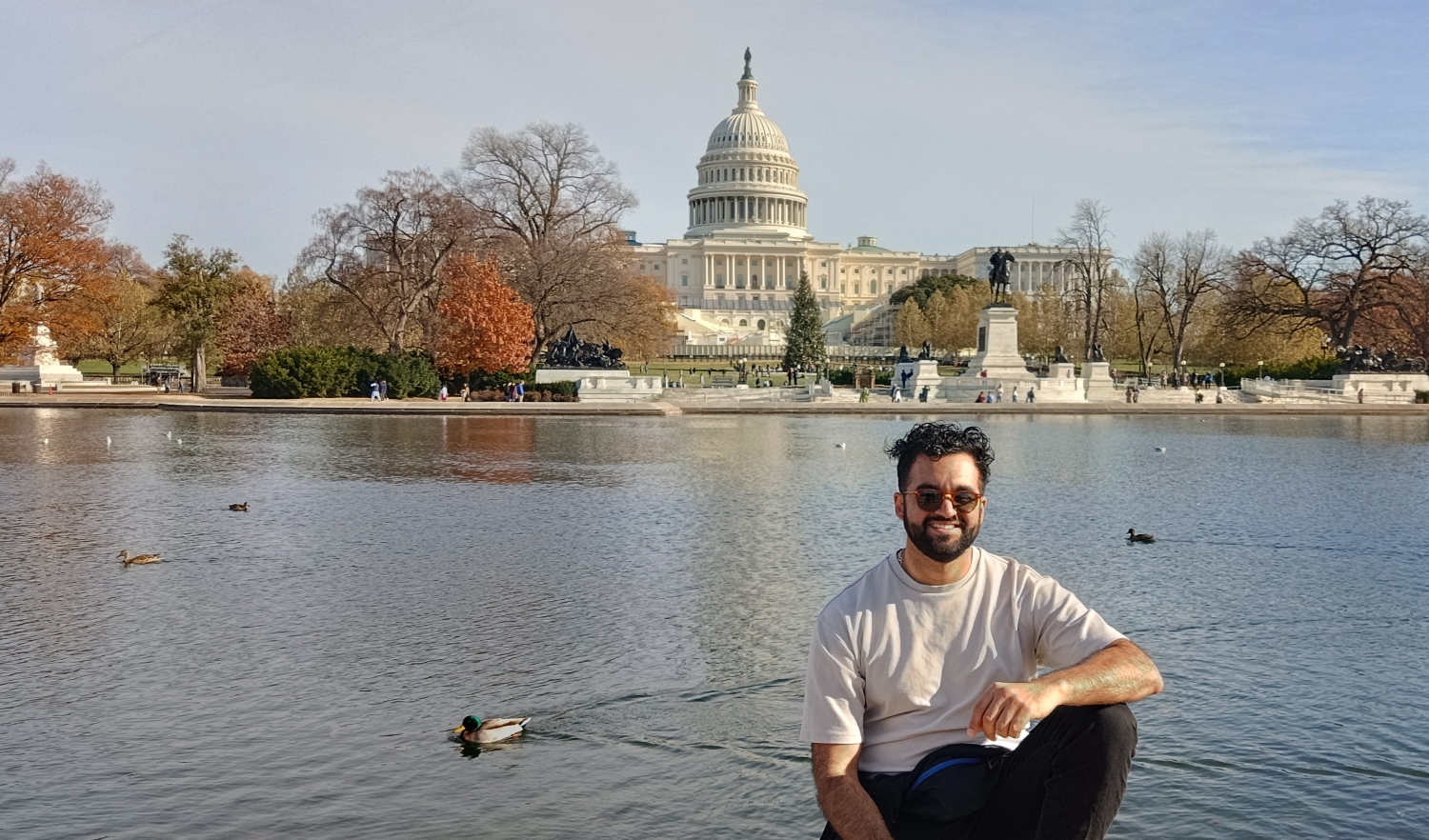
Sightseeing at Washington D.C., USA 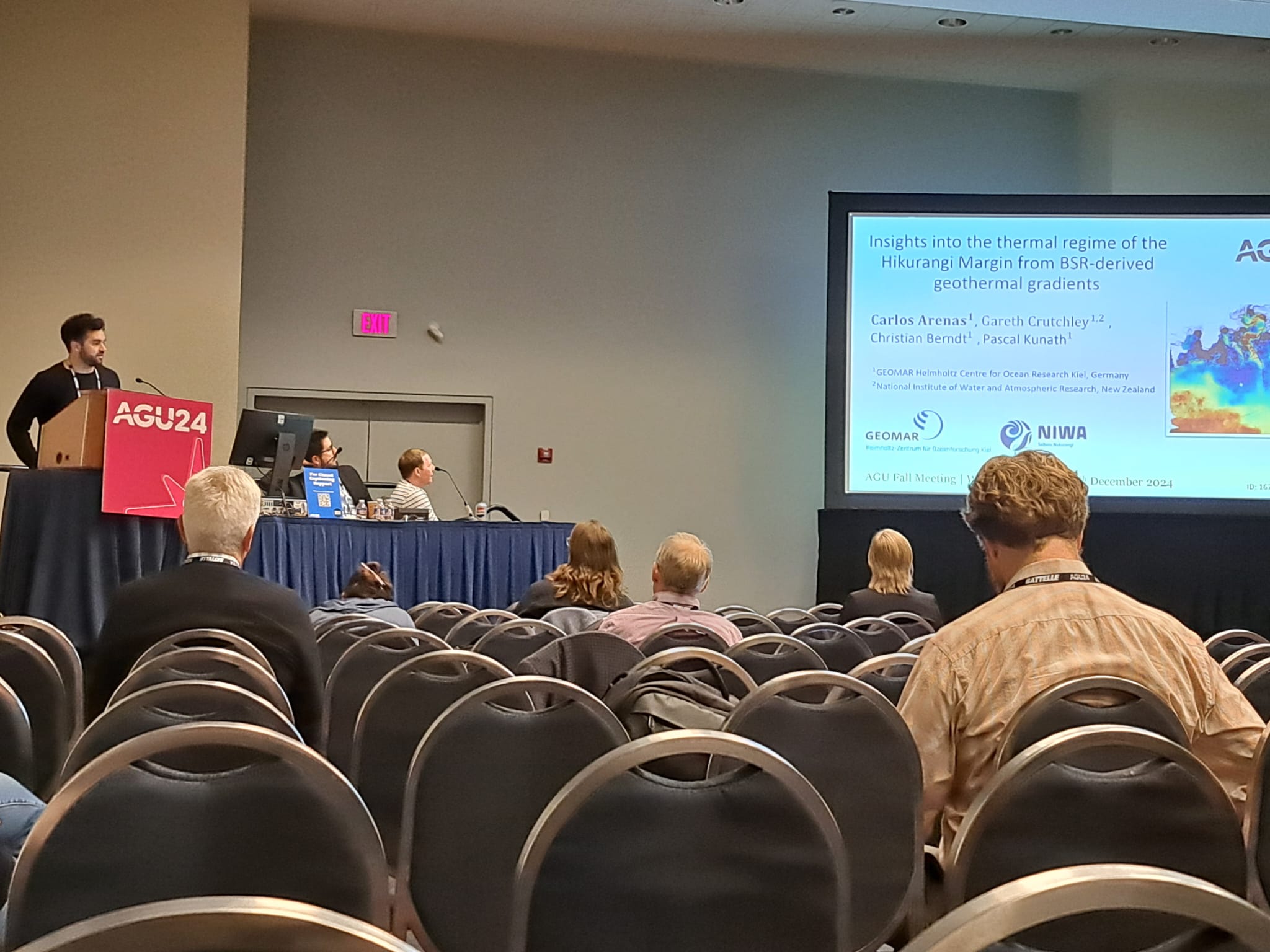
Carlos presenting his research
This was my third scientific conference and this was the first time I had the opportunity to share my work orally. I presented my research to an audience of people whose names I had previously only encountered in scientific articles. Sharing the same podium with them made me feel truly part of the scientific community.
Throughout my studies and career, I have delivered oral presentations on several occasions to different types of audiences, including colleagues at the university, the general public during outreach talks, or a company’s board of directors to present my ideas. However, the fact that this time I was sharing with a global expert audience brought imposter syndrome knocking at my door. Although it was very
challenging to present my work, which took over a year to prepare, in just 8 minutes, it was highly gratifying to see the genuine interest from the community through questions and invitations. As a result, I received valuable feedback on my work, together with ideas for new projects.
Additionally, AGU24 provided access to a wealth of fascinating research, plenary sessions, and workshops tailored to the needs of Early Career Researchers like myself. Due to my special interest in other sciences, such as stellar evolution, and the vast array of events offered, it was a bit challenging for me to select which events to attend. The amount of new information, interactions, and the busy schedule made the week at the conference feel exhausting. However, I always managed to recharge with a beer and dinner at one of Washington’s many restaurants. Despite the challenges, I firmly believe that all ECRs should experience attending conferences, especially the AGU annual meeting.
Carlos Arenas
ICYMARE conference in Bremen: Part 1
My name is Adigozalli Nijat, and I am currently a master’s student in Marine Geoscience at Kiel University, Germany. My research focuses on understanding barrier functioning and integrity during CO₂ storage, with a special emphasis on laboratory studies simulating subsurface conditions. This field is vital for advancing carbon capture and storage (CCS) technologies as a solution to mitigate climate change.
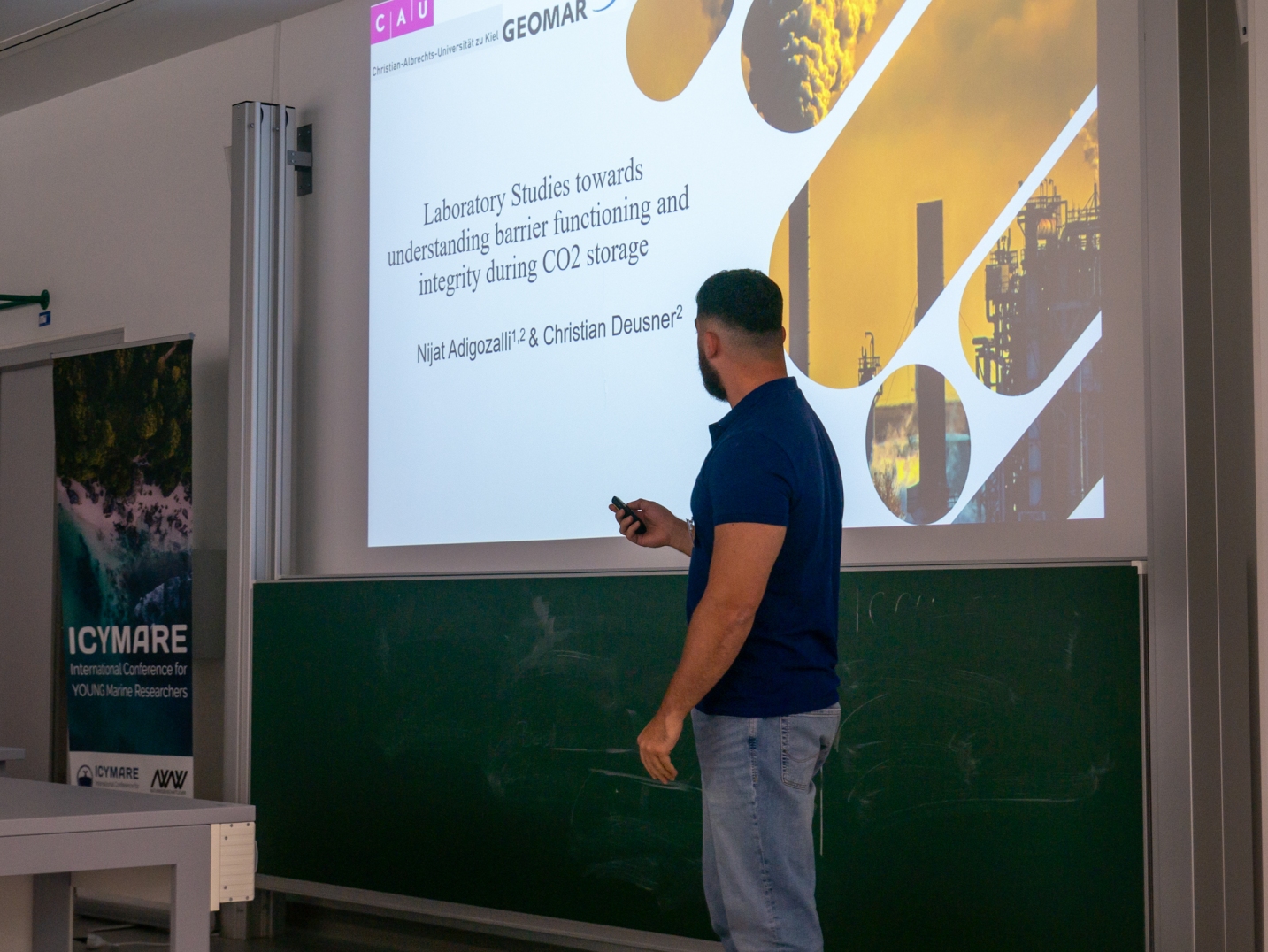
I am grateful to FYORD for awarding me the travel grant, which made my participation in ICYMARE 2024 possible. Programs like FYORD play a critical role in supporting early career researchers by providing financial assistance to attend conferences and engage with the broader scientific community. This opportunity allowed me to share my research, gain valuable insights, and expand my professional network.
Through the travel grant, I had the opportunity to attend the ICYMARE 2024 conference held in Bremen, Germany. ICYMARE (International Conference for Young Marine Researchers) welcomed a total of 171 participants from 32 countries and featured 83 scientific talks and 35 posters. The event began with an icebreaker at the Übersee Museum, where over 100 attendees mingled and made their first connections. The conference spanned five days, featuring keynote speeches, oral presentations, poster sessions, and workshops. My contribution was a poster presentation titled “Laboratory Studies Towards Understanding Barrier Functioning and Integrity During CO₂ Storage.” This allowed me to present my findings, discuss challenges, and receive valuable feedback from experts in the field.

Attending ICYMARE 2024 was an enriching experience. The event exceeded my expectations in terms of networking opportunities and the diversity of research topics presented. I shared my project with young researchers, received insightful feedback, and participated in discussions that broadened my perspective on CCS-related challenges and solutions. Additionally, I learned from presentations by other participants, which highlighted innovative techniques and methodologies in marine research.
I wholeheartedly recommend ICYMARE to others, as it offers a supportive environment to showcase research, develop skills, and establish meaningful connections within the scientific community.
Nijat Adigozalli
ICYMARE conference in Bremen: Part 2
We are Léa and Cindy and we hosted a session together at the conference. Our session was called “Coastal Ecology and potential effects of Climate Change: from the Individual to the Ecosystem” (Session 1.5).
Cindy: I attended the ICYMARE conference as a master’s student to present the results of my thesis. Meanwhile, I started my PhD at the Research and Technology Centre (FTZ) at the Westcoast in Büsum to continue my studies about goby behaviour and adaption to challenging extreme situations caused by marine heat waves. For my master’s thesis, I conducted a study about the reproductive behaviour of gobies and how it is influenced by marine heat waves. I attended the ICYMARE conference already in 2023 in Oldenburg and enjoyed the exchange with people from different marine research fields a lot. So naturally I wanted to come back and present my master’s thesis at the conference, which made me win the award for the best poster, next to hosting the session with Léa and volunteering as well to support this great conference.
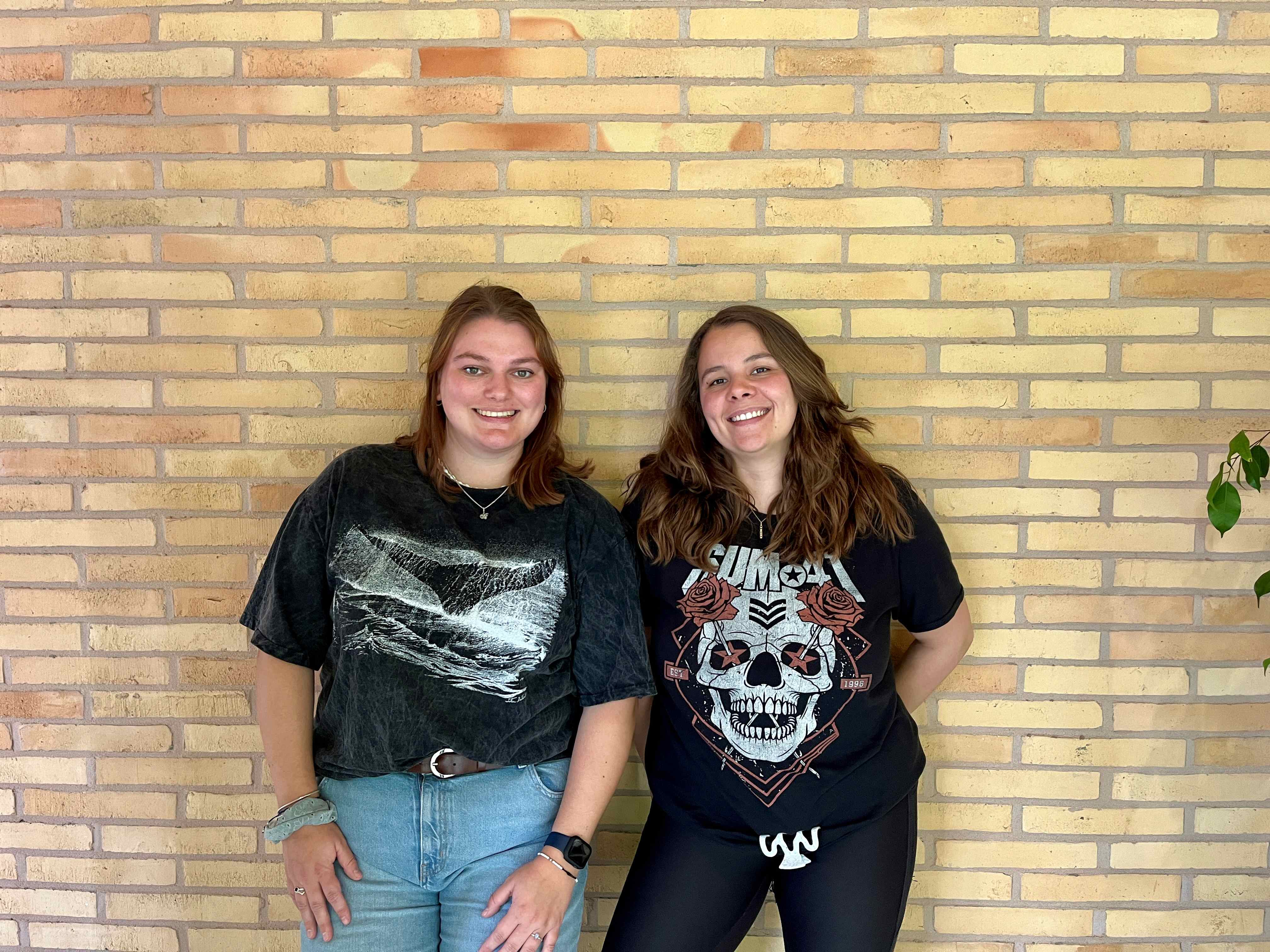
Lea and Cindy at the conference. 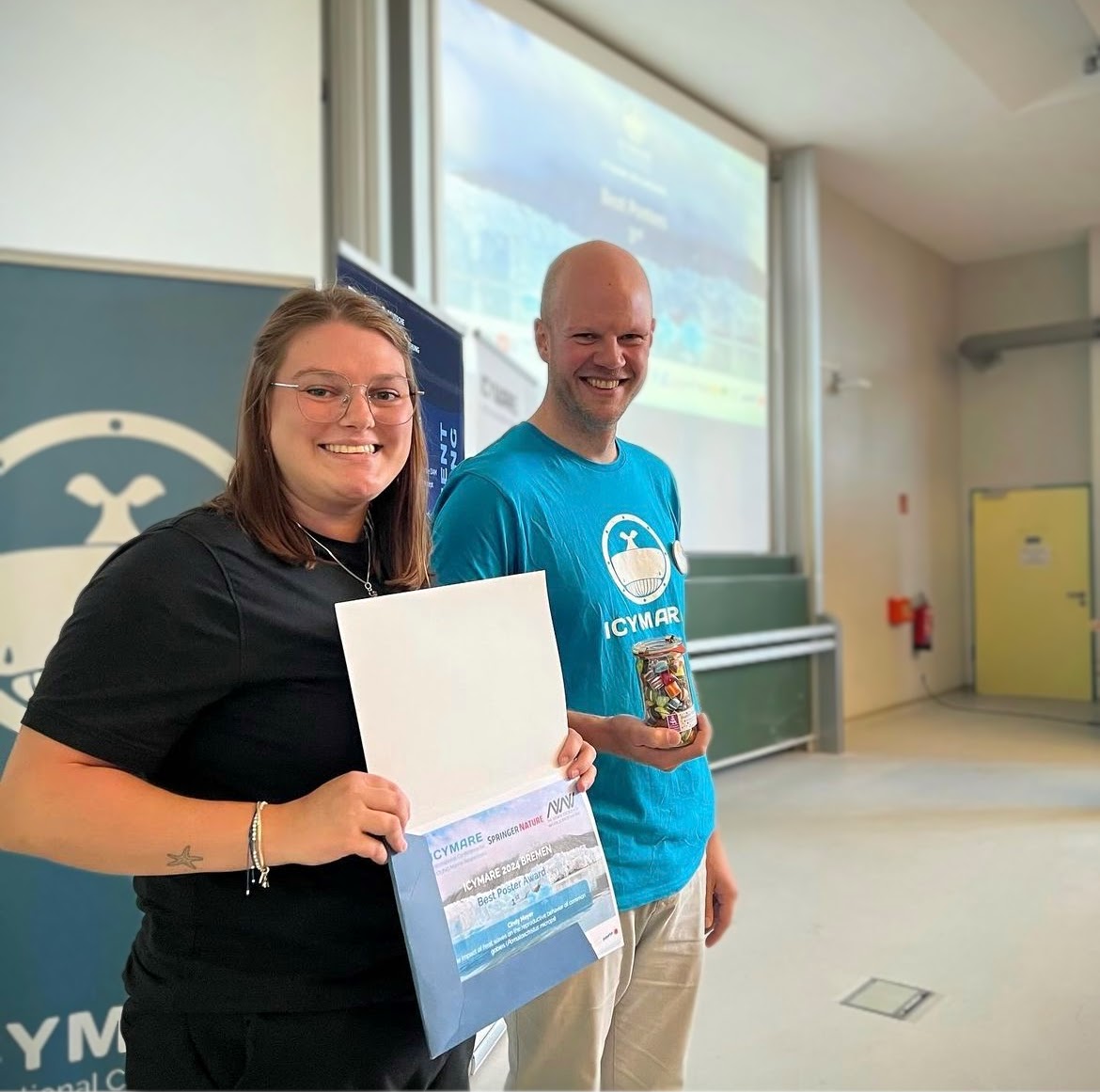
Cindy receiving her award.
Léa: I discovered the conference through Cindy. At the time, I was doing a postdoc between FTZ and Geomar, working on climate change’s impact on a benthic community. The research I conduct aims to understand how climate change can modify an individual’s physiology and potential for survival, and what are the consequences at the scale of the community. While I work with different animal groups, my favourite is the fish, and this is how I started working with Cindy. While Cindy has strong expertise in fish behaviour, I mostly study the ecophysiology and recruitment of individuals, we scientifically complete each other and this is how we got the idea of a topic for this conference.
In September the ICYMARE conference was held in Bremen. It is an international conference for young marine researchers and a bottom-up initiative driven by volunteers. 171 young scientists from 32 countries participated and presented 83 scientific talks and 35 posters. The conference lasted for 4 days and contained lots of discussions, workshops, presentations and social events to make connections to find people who share research interests, collaborations, new friends and interesting research topics. Topics ranged from coastal ecology over microplastics, tropics and arctic regions to underwater sound, everyone was welcome to share their studies.
The conference is a great opportunity to meet new people and get insights into a lot of different research fields. It was an interesting experience for both of us to get to host a session and to volunteer during the event, allowing us to learn and develop new skills mandatory in science. The conference succeed in creating a supportive environment, scientifically and socially, mainly thanks to the huge work of an amazing organisation core team and the volunteers behind it. We would strongly recommend this affordable and quality event to anyone starting their journey through academia.
Léa and Cindy
Alexandra and the 3rd DACH Geobiology Symposium for Early Career Researchers
My name is Alexandra Tecza-Wiezel, and I am a PhD candidate in the field of geomicrobiology at GEOMAR Helmholtz Centre for Ocean Research Kiel, within the Department of Marine Biogeochemistry, Research Group Geomicrobiology AG Perner. My academic background is in molecular biology, and my current research focuses on analyzing the impact of microbes, particularly bacteria, on the transformation of pyrite and chalcopyrite. These minerals are key components of seafloor massive sulfide (SMS) deposits formed at hydrothermal vents, and understanding their microbial interactions is crucial for biogeochemical cycling and potential resource utilization.
The Event
Thanks to the FYORD Travel Grant, I had the opportunity to attend the 3rd DACH Geobiology Symposium for Early Career Researchers, which took place in Bayreuth, Germany. This symposium is a three-day event that brings together approximately 50 participants, including PhD candidates, postdocs, and undergraduate students working at the intersection of bio- and geosciences. The symposium serves as a platform for early career researchers to present their work, engage in discussions, and establish professional networks.
Geobiology is a highly interdisciplinary field that bridges topics such as the origin and evolution of life, biogeochemical processes, Earth’s climate history, geophysics, and microbial life in extreme environments. The event featured presentations, keynote lectures, and informal networking opportunities, making it a valuable experience for young researchers like myself.
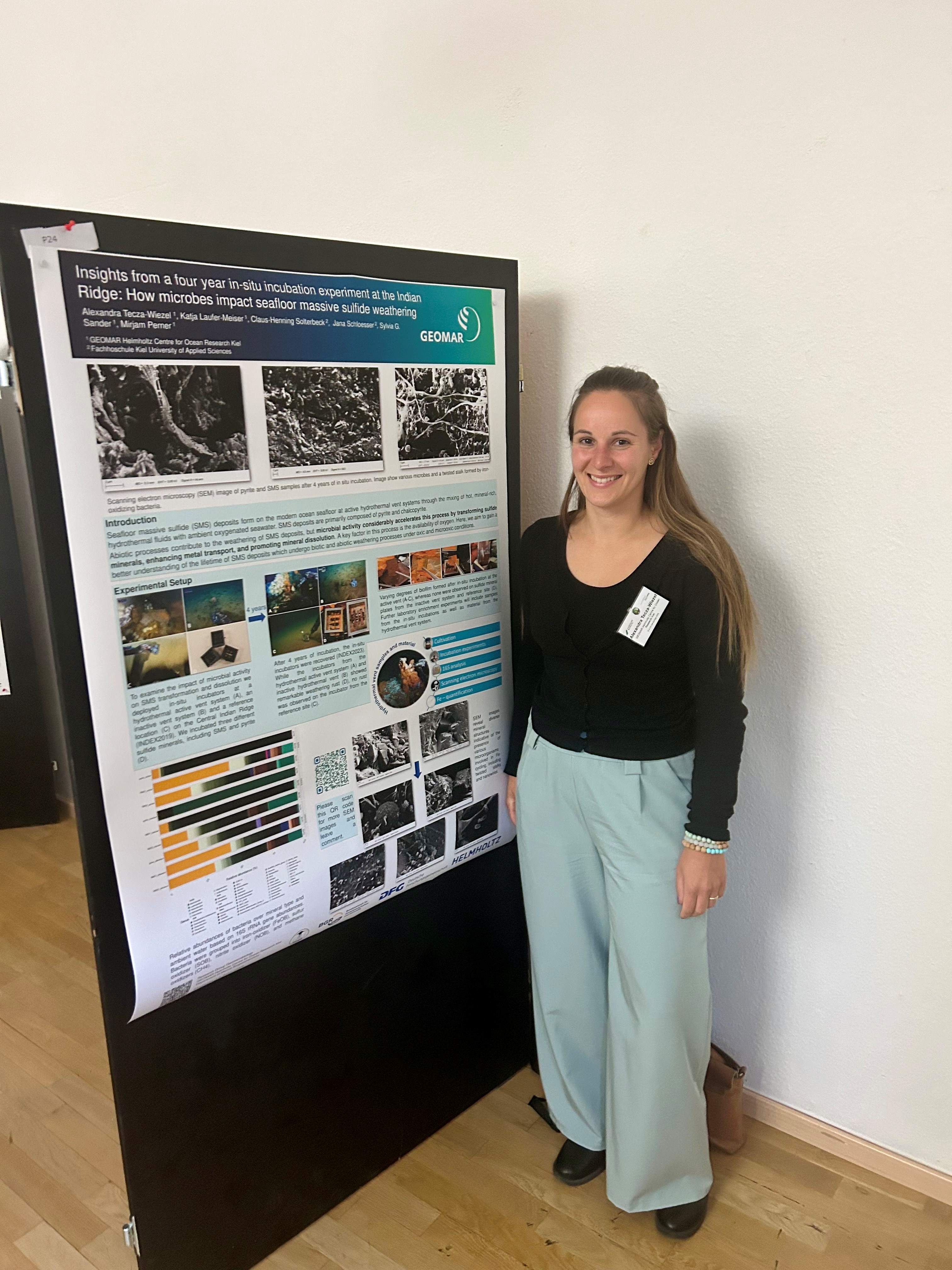
Reflection
I thoroughly enjoyed attending the symposium. It was inspiring to connect with fellow researchers, learn about different geobiology topics, and engage in meaningful scientific discussions. The event exceeded my expectations, offering a welcoming atmosphere where participants could freely exchange ideas and explore potential collaborations.
One of the most fascinating takeaways from the symposium was a talk titled Is anoxia a hoax? Evidence for the widespread occurrence and cycling of “dark oxygen” in apparently anoxic environments by Dr. S. Emil Ruff from the Marine Biological Laboratory in Woods Hole, USA. This presentation introduced me to intriguing new perspectives on oxygen cycling in anoxic environments, broadening my understanding of microbial processes in extreme settings.
While the event was highly engaging, one challenge was maintaining focus throughout the diverse range of topics covered. As geobiology spans multiple disciplines, it was sometimes difficult to fully grasp the details of research areas outside my direct expertise. However, this also served as a motivation to expand my interdisciplinary knowledge.
Looking ahead, I am eager to attend the next DACH Geobiology Symposium, which will take place in Vienna. I would highly recommend this event to other early career researchers working in geobiology, as it provides an excellent opportunity for networking, learning, and professional growth.
Alexandra Tecza-Wiezel
